The COVID-19 pandemic changed the way Australians live, work and shop. Schools, universities and offices transitioned online, along with a significant number of bricks-and-mortar retail stores.
Social distancing measures, lockdown restrictions and store closures meant retailers and shoppers alike had to rapidly adapt to online purchasing channels. This catapulted online shopping from being a convenient way to shop to becoming the safest and, at times, the only way to shop. As a result, the ecommerce sector experienced unprecedented growth throughout 2020 as Australia transitions to a "new normal".
How many Aussies shopped online?
A nationally representative Finder survey of 1,066 respondents revealed that approximately 88% of Aussies – equivalent to 17 million people – were shopping online.
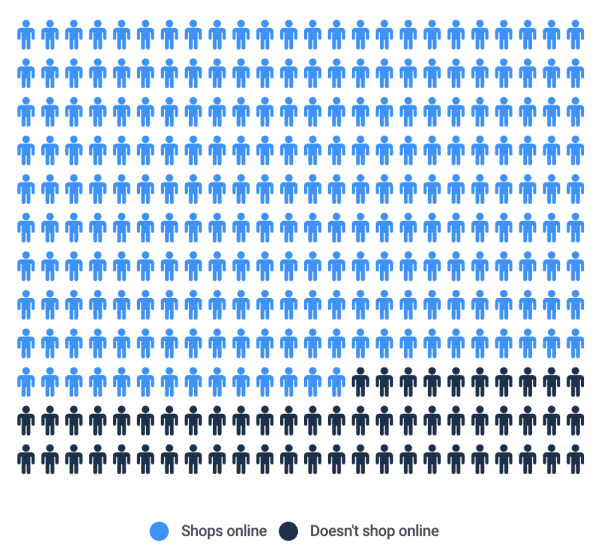
How much did Australians spend online?
Despite the nation entering a recession, the pandemic pushed Australians to spend more online than they were pre-pandemic. Ecommerce behemoths like Amazon and eBay were a major enabler of growth throughout that time. As the pandemic persists, more retailers got a slice of the pie.
Finder research shows that Aussies were spending approximately $188 per week on online shopping (including groceries). This is equivalent to $9,776 per year, which is $1,600 more per year compared to pre-pandemic levels. This increase in spending has flushed an extra $167 billion into the economy.
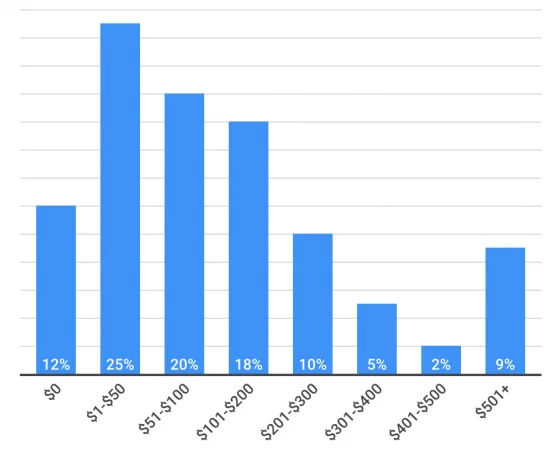
Millennials were also the most likely to "Add to cart", spending approximately $254 per week online. Baby boomers spent just $91 per week in comparison.
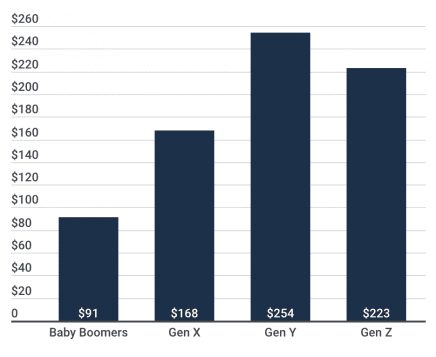
Spending by state
While there are fewer people buying online in New South Wales, the average resident is spending more ($214 per week) than someone in Victoria ($202) and much more than someone in Queensland ($133).
South Australian residents were shopping online the least, with just 82% spending money online compared to 91% of Victorians and 92% of Queenslanders.
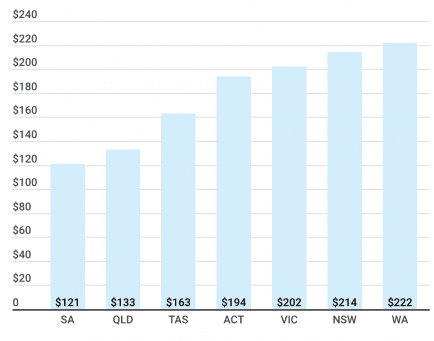
How much time did Australians spend shopping online?
Finder's research found that the average person was spending approximately 5.3 hours per week browsing online stores, equivalent to 21.2 hours per month.
If the typical work day is 8 hours, this means Aussies spent almost 3 work days per month – or 36 working days per year – shopping online.
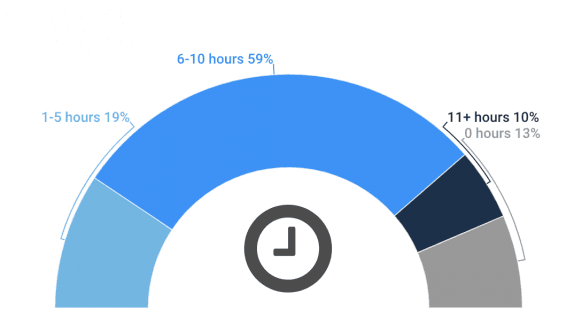
But older Aussies weren't immune either – gen X spent 5.2 hours and baby boomers spent 3.7 hours on average.
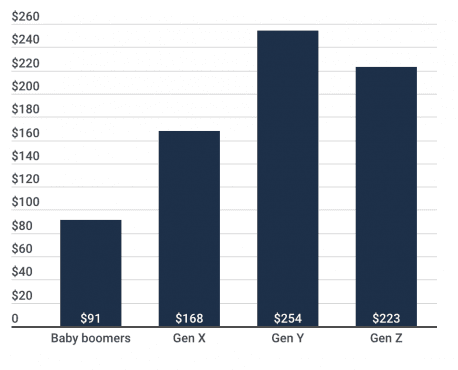
Ask a question
More guides on Finder
-
Economic snapshot: 4 things to watch this month
Get up to speed with the latest economic update, offering insights into Australia's financial landscape.
-
Finder’s Cost of Living Pressure Gauge
Finder's Cost of Living Pressure Gauge measures the financial stress experienced by Australian households.
-
Finder Consumer Positivity Index
Tracking how Australian consumers feel about the economy and their financial lives.
-
Finder’s Property Investment Index Hobart
Finder's Property Investment Index predicts price growth in each suburb across Australia's major cities. Find out how your suburb stacks up.
-
Finder’s Property Investment Index Adelaide
Finder's Property Investment Index predicts price growth in each suburb across Australia's major cities. Find out how your suburb stacks up.
-
Finder’s Property Investment Index Perth
Finder's Property Investment Index predicts price growth in each suburb across Australia's major cities.
-
Finder’s Property Investment Index Brisbane
Finder's Property Investment Index predicts price growth in each suburb across Australia's major cities.
-
Finder’s Property Investment Index Sydney
Finder's Property Investment Index predicts price growth in each suburb across Australia's major cities.
-
Finder’s Property Investment Index Melbourne
Finder's Property Investment Index predicts price growth in each suburb across Australia's major cities. Find out how your suburb stacks up.
-
Consumer Sentiment Tracker
Discover average home loan sizes around Australia and much more with our comprehensive guide to home loan statistics.